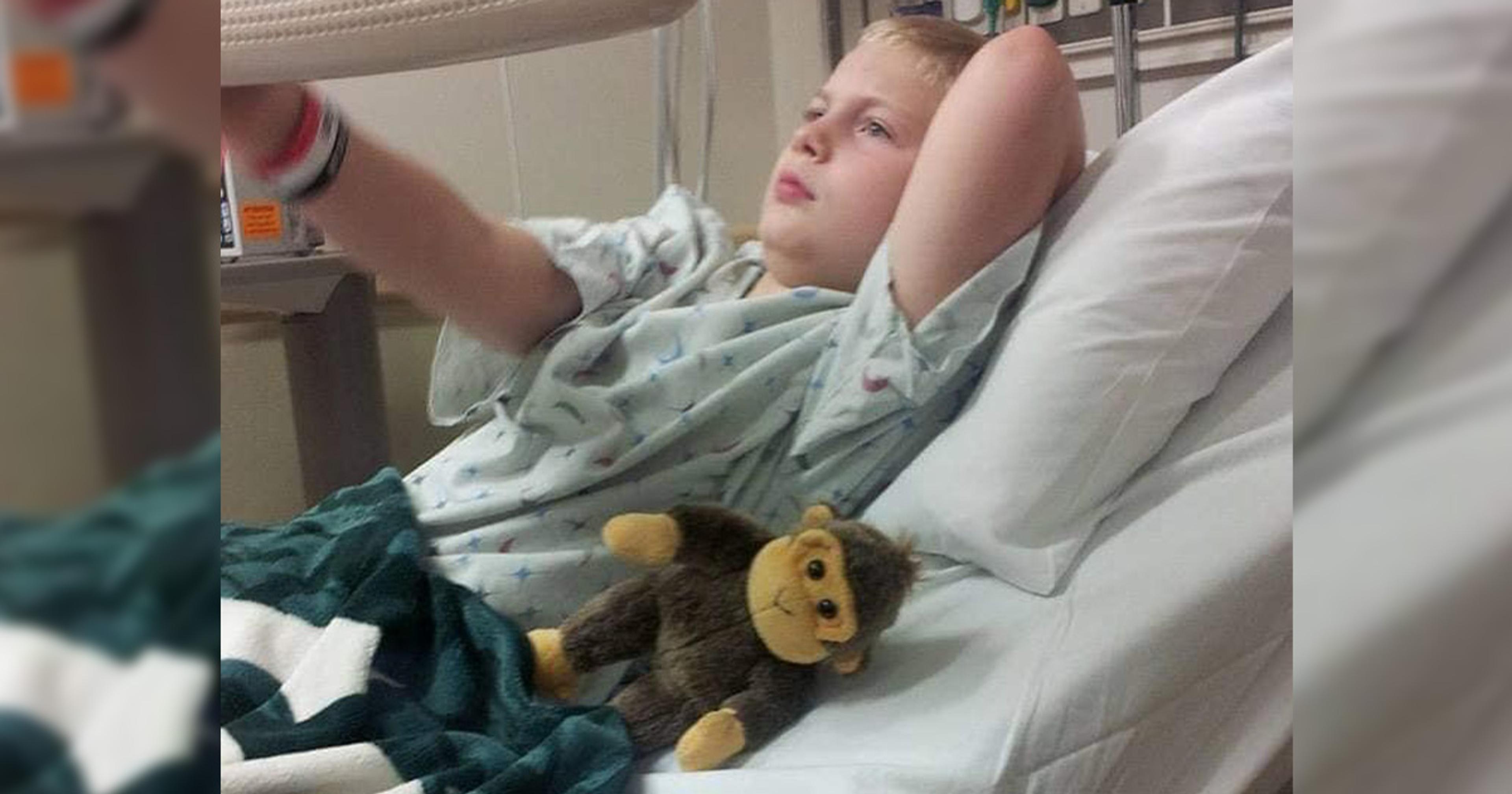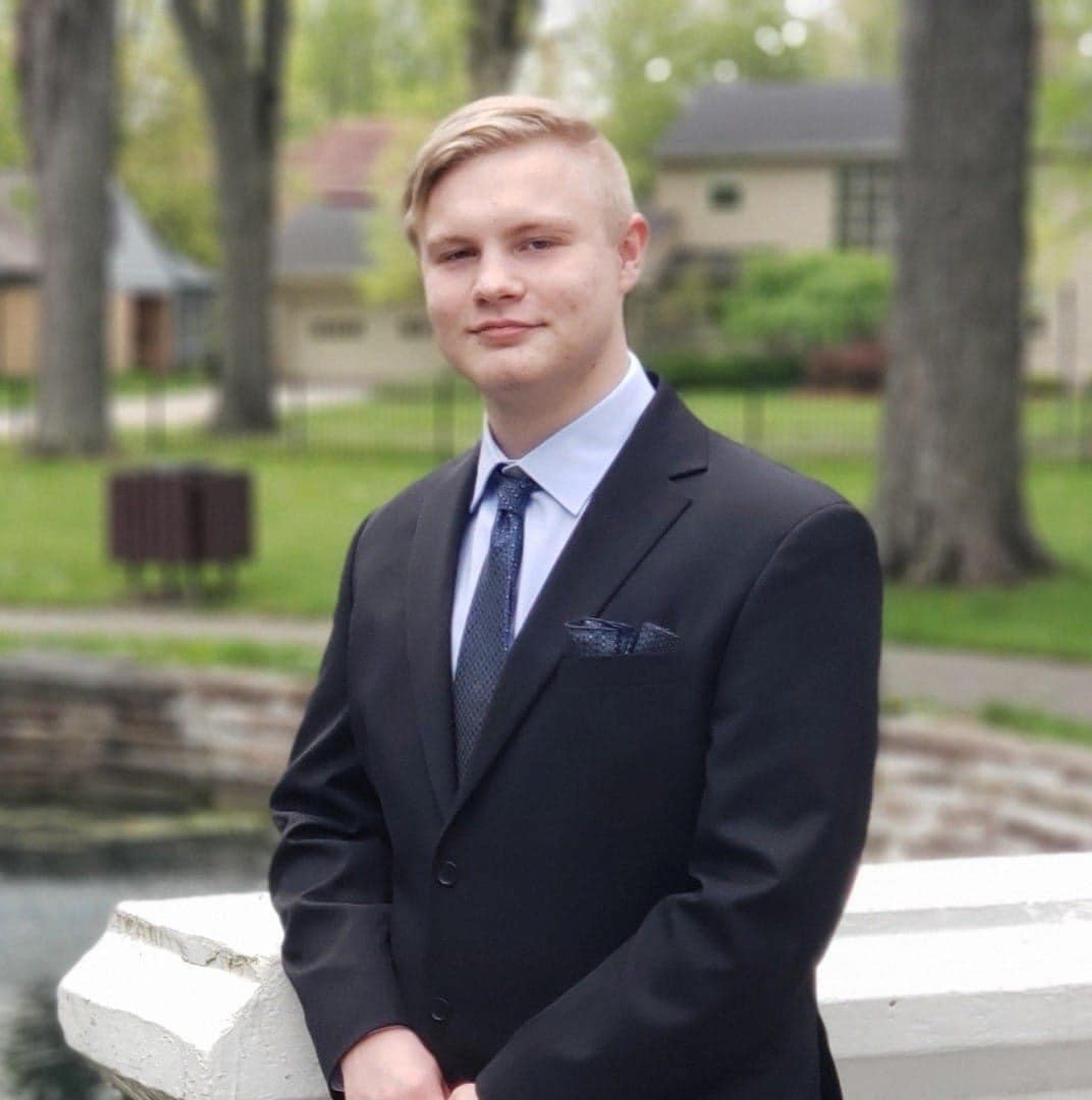Life-Threatening Bout with Diabetes Guides Michigan Teen Towards Advocacy

Jake Newby
| 5 min read
Jake Newby is a brand journalist for Blue Cross Blue Shield of Michigan.

When 8-year-old Jacen Scaggs was tired and dehydrated on a family trip in Wisconsin, his parents didn’t think much of it. Their son had no underlying conditions, so when Jacen found himself fighting for his life in a Milwaukee hospital room following a type 1 diabetes diagnosis, the family was in complete shock.
“Seeing your child go off in that Flight for Life helicopter, I don’t wish that on my worst enemy,” said Jacen’s mother, Cynthia Scaggs, whose family lives in Auburn, Michigan.
Jacen Scaggs fell into a three-day coma in August of 2012. Waves of emotions washed over Cynthia in those three, long, mentally agonizing days. One of those emotions was guilt.
“I thought he had the flu, a tummy bug,” Cynthia said. “I never knew anyone who was diabetic. We don’t have a family history of it. I didn’t know what to look for, or anything like that. I just knew I didn’t want to lose my baby, my youngest. He’s my baby.”

Incredible round-the-clock care from Jacen’s medical staff nursed him back to health. When he woke up, he did so to a whole new life as a type 1 diabetic.
“I started taking insulin daily since the day of my diagnosis,” said Jacen, a Blue Cross Blue Shield of Michigan member. “Honestly, the main thing that changed is, those first few years my mom and my dad were really on me about my blood sugars and stuff like that. That was a pretty big change, because before that they weren’t on me about my health of stuff. After a first few years I kind of became very independent with my diabetes and how to manage it.”
If there was a silver lining to be found in Jacen’s urgent situation, it’s that his entire family made some dietary changes to cater to his condition. Carbohydrates were counted more than they were prior to the health scare.
“We were taking in so many more carbs than we really needed to,” Cynthia said. “It’s not just the sugars, it’s the carbs. Our doctor at that time he had a nutritionist, who happened to go to the same school our children did, also told us around that time that becoming more active was very important.”
Physical activity can help make a diabetic’s body more sensitive to insulin, which makes it easier for muscle cells to use any available insulin to take up glucose during and after activity. Being active also helps control blood sugar levels and can lower a person’s risk of heart disease and nerve damage, according to the U.S. Centers for Disease Control and Prevention (CDC).
“As a family we got more active,” Cynthia said. “’Hey let’s go to the park, let’s go play baseball, let’s go throw the football around.’ Being more active. Honestly, I don’t think Jacen ever minded or cared that everything changed. He’s so resilient and so strong. And he always had a motto. ‘He might have diabetes but diabetes doesn’t have him.’”
Paying it forward: How Jacen became a diabetes advocate as a teen and young adult
Even now, Jacen said he struggles with some aspects of diabetes. As he grew up, he developed support systems that helped him with those struggles. He learned little things, like keeping his blood sugar in check while being physically active. And if he knew he was going to be physically active at a certain time, take a smaller bolus insulin dose than normal for an upcoming meal, so your blood sugar doesn’t drop low.
Tips and guidance like that came from the counselors he met at diabetes camp, which Jacen began attending a few years after his diagnosis. Then, years later as a teenager, he became a camp counselor himself.
“Being a camp counselor there really helped me pay it forward,” said Jacen, who is now 19 years old.

Jacen also worked at the Junior Diabetes Research Foundation’s Michigan chapter as a youth ambassador, as part of his pointed efforts to help kids navigate life as a diabetic.
“When I was a counselor at the camp, I was freshly out of high school and was put with a lot of fourth graders,” he said. “It was like being a normal kid for them for a few weeks, because everyone around them, including the counselors, all had diabetes.”
Today, Jacen studies social relation and policy and comparative cultures in politics. He recently applied for a summer internship with the American Association of People with Disabilities.
“If I get this internship, I’ll go to Washington D.C. with legislators working on disability advocacy, in which I’d try to focus heavily on diabetes advocacy,” he said. “Because diabetes is a disability.”
From a three-day coma to multiple advocacy platforms, Jacen’s journey is not lost on his mom. She couldn't be prouder of the moxie he's shown and the path he's taken since those terrifying three nights in Milwaukee.
“Being the youth ambassador, being the camp counselor, I’m going to be honest – Jacen is probably one of the smartest young men I’ve ever known,” Cynthia said. “I’m not just saying that because he’s my kid. I’m saying that because he does his research and he works hard for what he believes in and what he has and what he’s doing. He’s amazing. I’m so proud of him, so is his whole family.”
Photo credit: Cynthia Scaggs
Keep reading:
- ‘I’m Growing Back:’ Brownstown Breast Cancer Survivor’s Love of Gardening Helped Her Through Treatment
- Muskegon Man Finds 'Purpose’ as Suicide Prevention Facilitator Following Suicide Attempt
- Detroit’s SASHA Center's Behavioral Health Navigators Connecting Black Sexual Assault Survivors with the Resources Needed to Heal





